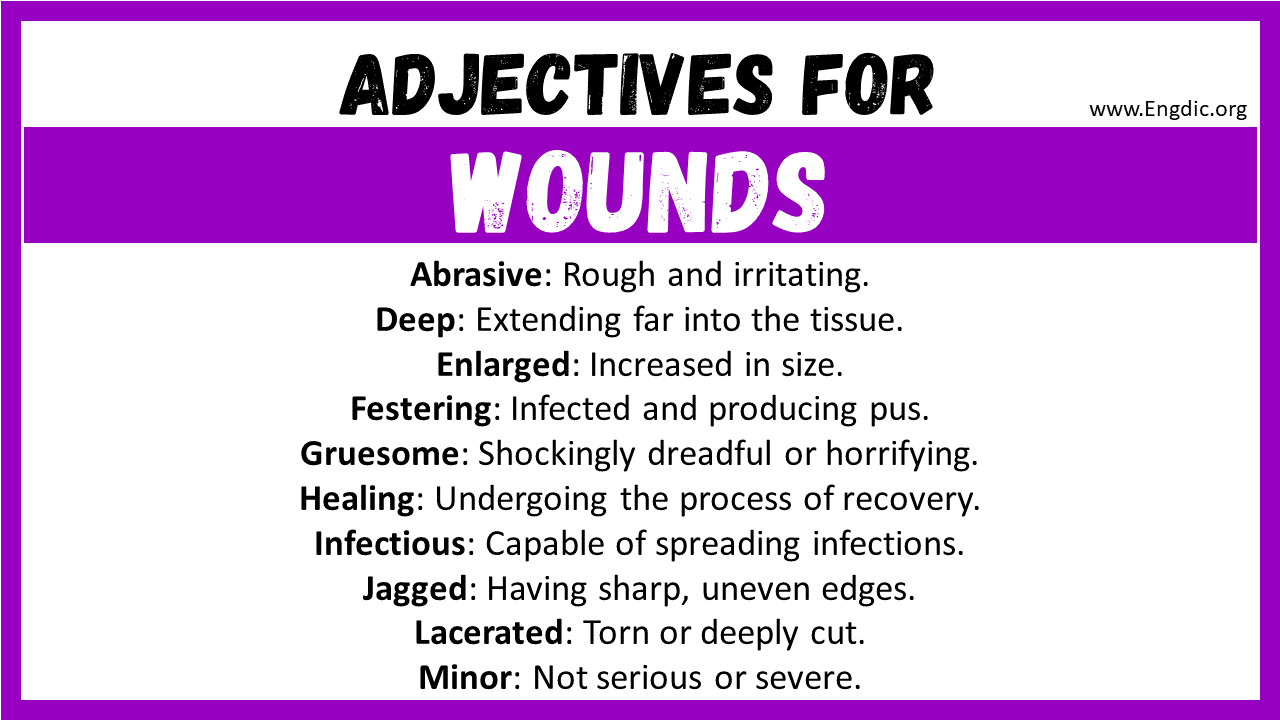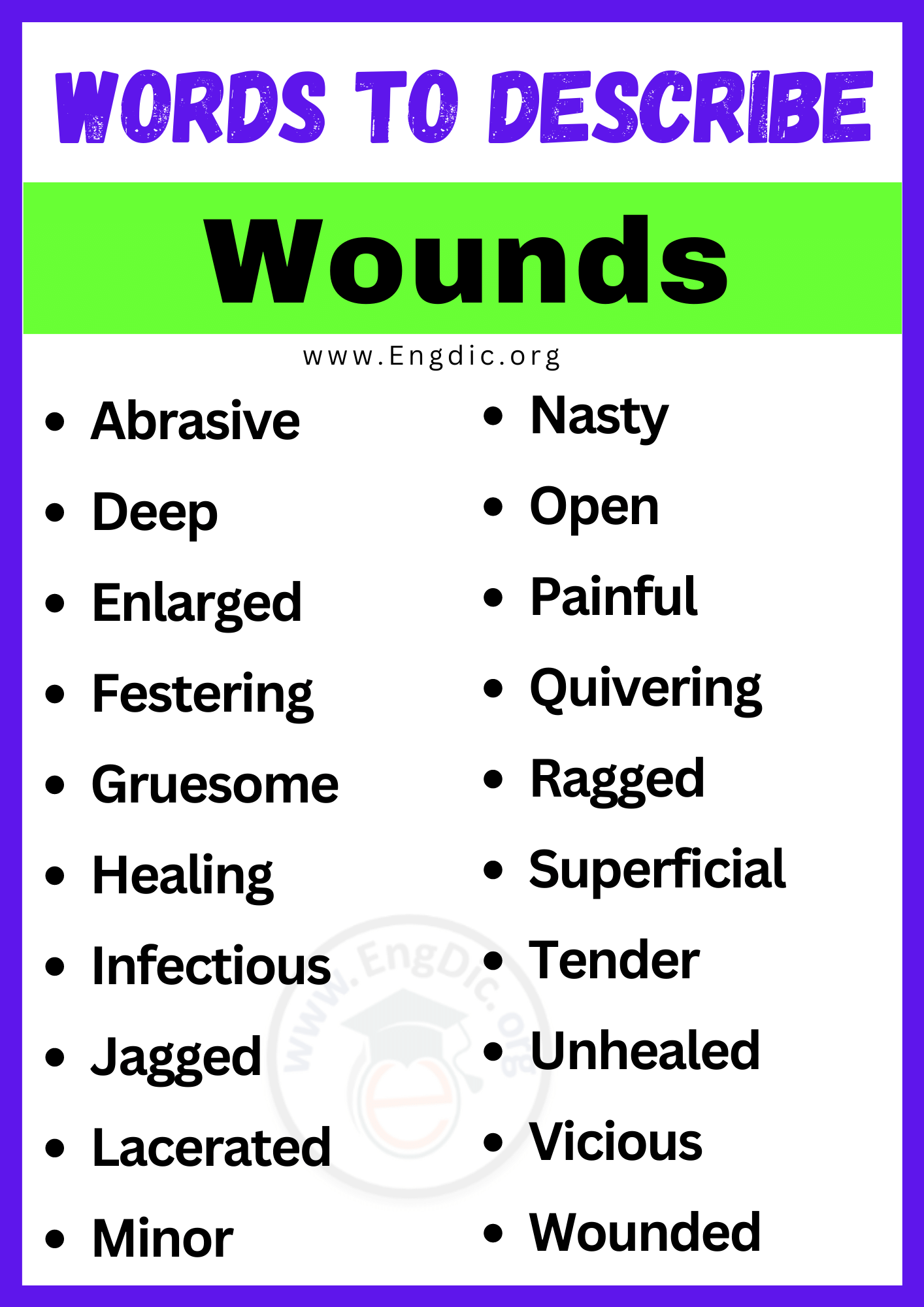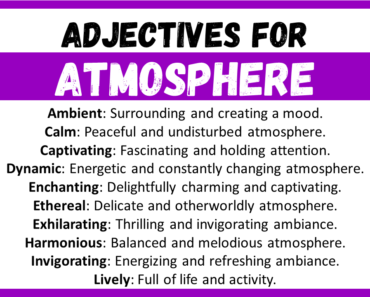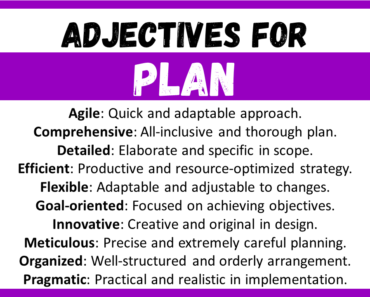Wounds, in simple terms, refer to injuries or damages that affect the body’s tissues. Whether inflicted by accidents, falls, or other unfortunate incidents, wounds can vary in severity and require appropriate care for proper healing. As we delve into the world of medical terminology, understanding the words used to describe different types of wounds becomes essential. From minor abrasions and lacerations to more serious punctures and contusions, this blog post explores a comprehensive list of words that help us better grasp the diverse nature of wounds and the healing process.
Adjectives for Wounds
Here are the 20 Most Popular adjectives for wounds:
- Abrasive
- Deep
- Enlarged
- Festering
- Gruesome
- Healing
- Infectious
- Jagged
- Lacerated
- Minor
- Nasty
- Open
- Painful
- Quivering
- Ragged
- Superficial
- Tender
- Unhealed
- Vicious
- Wounded
Words to Describe Wounds with Meanings
- Abrasive: Rough and irritating.
- Deep: Extending far into the tissue.
- Enlarged: Increased in size.
- Festering: Infected and producing pus.
- Gruesome: Shockingly dreadful or horrifying.
- Healing: Undergoing the process of recovery.
- Infectious: Capable of spreading infections.
- Jagged: Having sharp, uneven edges.
- Lacerated: Torn or deeply cut.
- Minor: Not serious or severe.
- Nasty: Unpleasant and causing discomfort.
- Open: Not closed or covered.
- Painful: Causing physical discomfort or distress.
- Quivering: Trembling or shaking.
- Ragged: Having a rough or irregular edge.
- Superficial: Affecting only the surface.
- Tender: Sensitive and easily hurt.
- Unhealed: Not yet closed or cured.
- Vicious: Severe and brutal.
- Wounded: Injured or hurt.
Example Sentences for Wounds Adjectives
- She had an abrasive scrape on her knee.
- The cut was deep and required stitches.
- The wound had become enlarged due to infection.
- The festering sore needed immediate attention.
- The horror movie had some gruesome scenes.
- The doctor checked the healing progress.
- They isolated the patient with an infectious wound.
- The jagged edge of the metal caused the injury.
- The hunter’s leg was lacerated by a branch.
- It was just a minor scratch, nothing serious.
- The wound had a nasty infection.
- He carefully cleaned the open wound.
- Her sprained ankle was painful to walk on.
- The wounded soldier’s lip was quivering with pain.
- The paper had ragged edges from tearing.
- The cut was superficial and didn’t require stitches.
- The burn was tender to the touch.
- The unhealed wound was still causing discomfort.
- The animal’s bite was vicious and deep.
- The wounded soldier was treated on the battlefield.
Explore More Words:
FAQ’s
How to describe wounds in writing?
Describing wounds in writing involves using vivid adjectives like “painful,” “bleeding,” or “healing” to paint a clear picture.
How do you use wound as an adjective in a sentence?
The wound on her arm was deep and required stitches.
Is wound a verb or adjective?
“Wound” can be both a verb and an adjective. As a verb, it refers to the act of injuring or causing harm, while as an adjective, it describes something related to an injury or damage.








